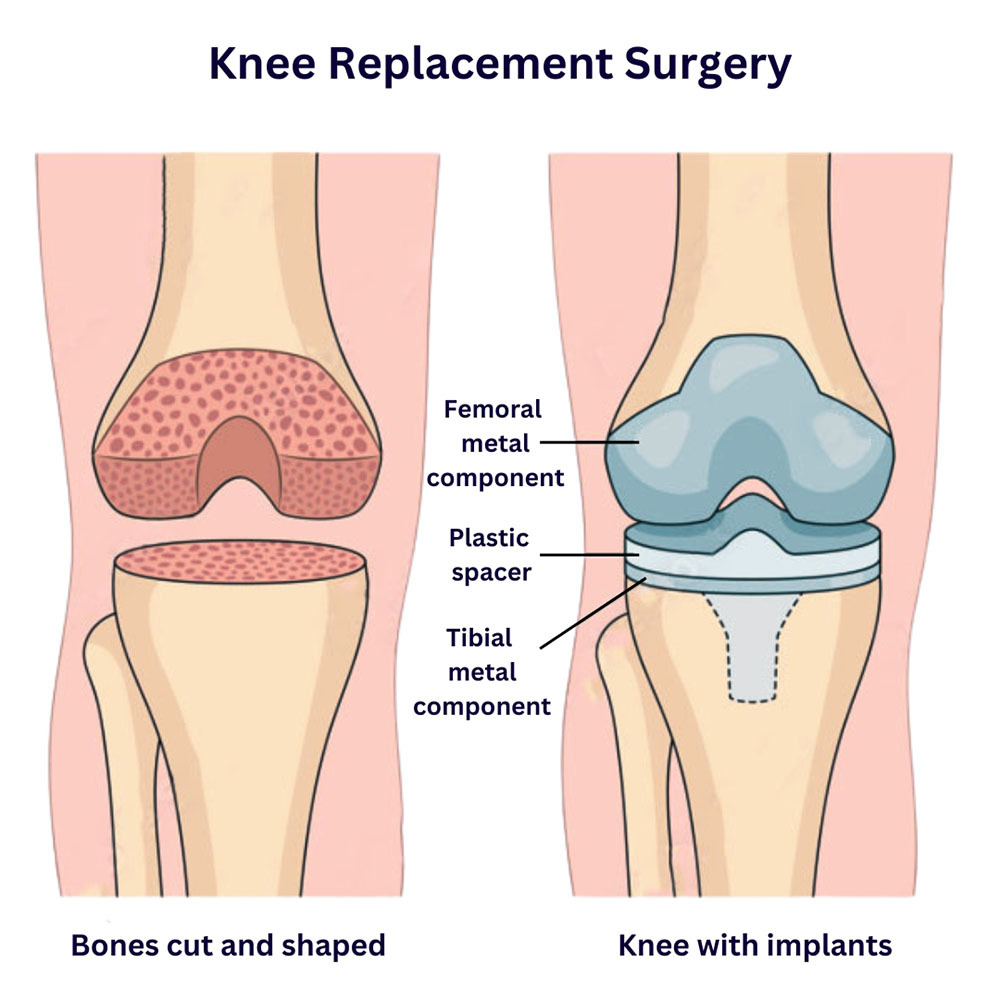
You have options for treating knee pain. But many people follow the advice of their primary care doctor and opt for knee replacement surgery before learning all the facts. But alternative measures don’t require risk, long recovery times or physical therapy. Don’t jump into surgery without first visiting a vein clinic in Brooklyn to learn about knee embolization. It’s a new technique that’s proving widely successful for treating mild to moderate knee pain. At Astra Vein & Fibroid Treatment Center, you get expert treatment from an interventional radiologist, who explains all the options you have for getting rid of knee pain.
You have options for knee pain relief other than an invasive surgical procedure, especially in the early stages of knee arthritis. Before having knee replacement surgery, take the time to learn as much as you can about alternatives, such as lifestyle changes and knee embolization, a minimally invasive procedure that offers relief of knee pain without surgery.
Dr. George Bolotin is a highly experienced interventional radiologist and vascular specialist in Brooklyn, NY who is expert at performing this and other vein procedures. He’s the founder and director of Astra Vein & Fibroid Treatment Center, the best vein clinic in Brooklyn.

Pain, swelling and stiffness of the knee from arthritis or other causes can make it difficult to do ordinary activities such as walking, standing and climbing stairs. Osteoarthritis is the most common form of knee arthritis. It’s caused by wear and tear common in people over the age of 50. If your knee is severely damaged, your doctor may recommend knee replacement surgery.
When you’re experiencing severe knee pain, it can be hard to think about anything other than pain relief, but there are some things to think about before deciding to go through with knee replacement surgery, such as:
The amount of time needed to fully recover from knee replacement surgery depends on your age and your activity level before surgery. Knee replacement surgery can be effective at relieving pain and restoring mobility for people who have severe arthritis, but it’s major surgery and recovery takes a long time.
Knee replacement is an invasive procedure, and you may want to consider alternatives if your arthritis isn’t yet severe. When knee replacement is done too early, revision surgery may be needed 10 to 20 years later.
Comparisons between knee replacement and knee embolization include:
After knee embolization, you may experience pain relief within a couple of weeks after surgery along with improved knee function and range of motion. After a knee replacement, you may have to continue to manage pain for several months or longer.
Knee embolization relieves pain and inflammation by blocking the blood supply to the lining of the knee joint.
Steps of this minimally invasive outpatient procedure include:
The procedure takes one to two hours, and after remaining in recovery at the vein center in Brooklyn for an hour or two, people typically go home the same day. There may be some slight bruising for the first few days after the procedure is done, but discomfort should be manageable using over-the-counter medication.
Knee replacement surgery is a much more complicated procedure, and the decision to have a knee replacement should be made only after exhausting all other options for relieving your knee pain. This type of surgery involves removing bone and cartilage from the knee joint and replacing it with an artificial joint.
Knee replacement may be a good choice if your arthritis is debilitating, but if you have osteoarthritis that doesn’t severely impact your quality of life or limit your daily activities, it may not be time to consider aggressive intervention.
Knee embolization offers an alternative that means you don’t have to continue to suffer with knee pain and may be a better option for you if:
If you’re looking for a Brooklyn vein center where you can obtain top-notch care for knee pain, contact Astra Vein & Fibroid Treatment Center. They also treat varicose veins, fibroids, hemorrhoids, peripheral artery disease and other vein conditions.
Vein & Vascular Medical Care
4209 Ave U, Suite A.
Brooklyn, NY 11234
(347) 934-9068
Vein & Vascular Medical Care
869 E Tremont Ave
Bronx, NY 10460
(929) 447-4563